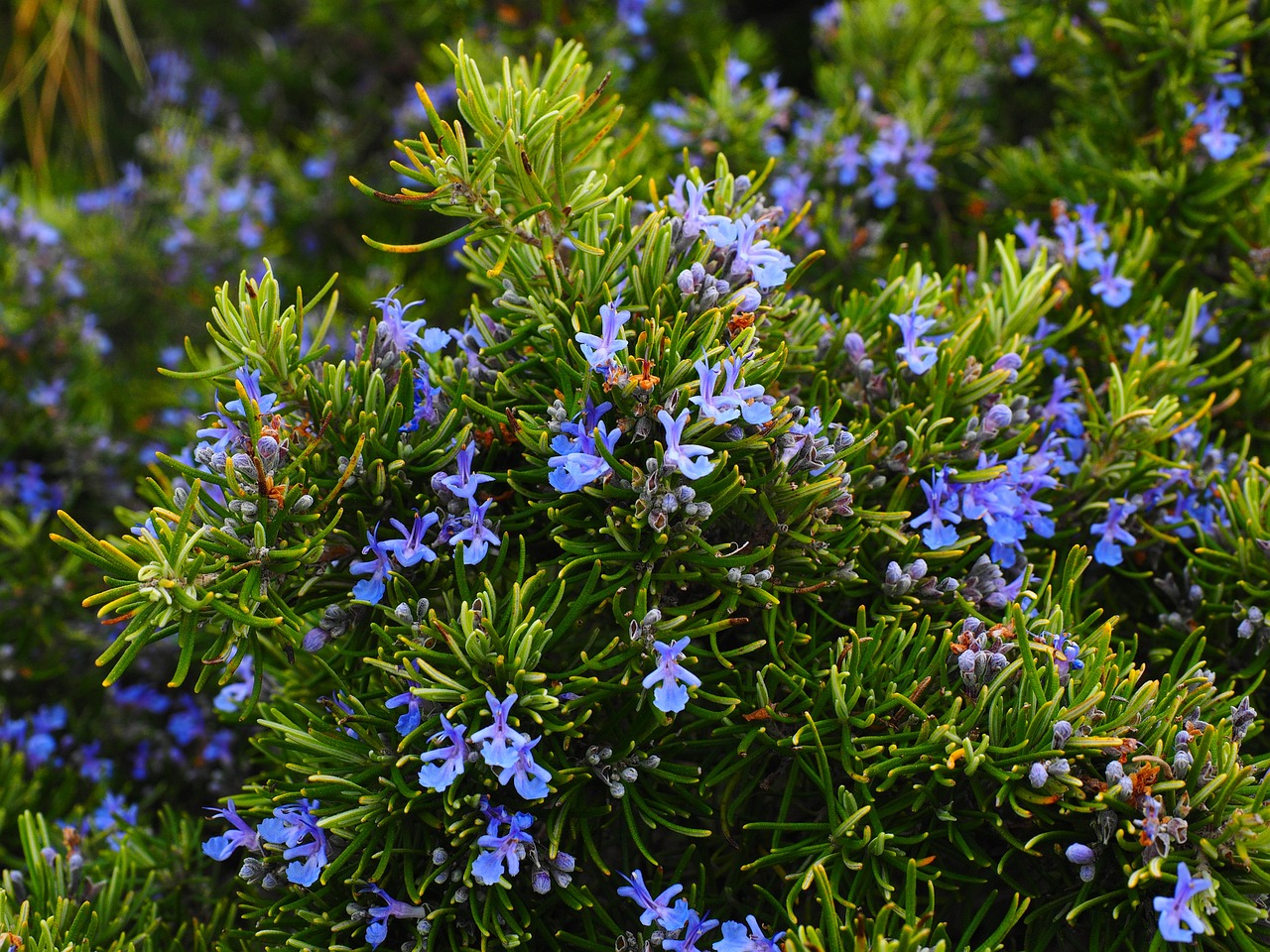What Plants Repel Mosquitoes. Mosquitoes are not only annoying but also dangerous, as they can carry diseases. Thankfully, there are natural ways to keep them away, and one of them is by using mosquito repellent plants. By incorporating these plants into your home or garden, you can create a buzzing-free environment and reduce the presence of mosquitoes. In this section, we will explore different types of plants that have natural mosquito-repelling properties, and how you can use them to your advantage.
Key Takeaways:
- There are many plants that naturally repel mosquitoes.
- By incorporating these plants into your home or garden, you can create a buzzing-free environment.
- Some of the best mosquito repellent plants include citronella, lavender, rosemary, marigolds, catnip, basil, and geraniums.
- Mosquito repellent plants not only keep mosquitoes away but also add beauty and fragrance to your living spaces.
- Using mosquito repellent plants is a natural and safe way to keep mosquitoes at bay.
Understanding Mosquito Repellent Plants
When it comes to deterring mosquitoes, chemical sprays and insecticides are not the only options. Many plants have natural properties that repel mosquitoes, making them a safe and non-toxic solution for both your home and garden.
These plants that deter mosquitoes can be used in various ways, including in gardens to create a mosquito-free zone, and in outdoor spaces to provide a natural barrier against mosquito invasion.
The benefit of using mosquito repellent plants for gardens and outdoor spaces is not only limited to their effectiveness in deterring mosquitoes but also in their ability to improve the overall aesthetics of the area. With their different sizes, shapes, and colors, these plants can add a touch of beauty and ambiance to your outdoor spaces.
Understanding Mosquito Repellent Plants
Mosquito repellent plants for gardens and outdoor spaces come in different varieties, each with unique characteristics and benefits. Understanding these plants is essential to making the right choices for your home and garden.
Some plants emit a natural fragrance that mosquitoes find offensive, keeping them at bay. Other plants produce chemicals that disrupt the mosquito’s sense of smell, making it challenging for them to locate their targets. Some plants have thick foliage that provides a physical barrier that mosquitoes cannot penetrate. Understanding these characteristics can help determine which plants are best suited for your needs.
| Plant Name | Characteristics | Best Used For |
|---|---|---|
| Citronella | Produces a strong lemon scent that repels mosquitoes | Outdoor spaces, gardens, patios |
| Lavender | Produces a sweet fragrance that repels mosquitoes and other bugs | Gardens, outdoor spaces, window sills |
| Rosemary | Produces a pine-like scent that repels mosquitoes and other bugs | Gardens, outdoor spaces, pots |
| Marigolds | Produces a scent that repels mosquitoes and other bugs | Outdoor spaces, gardens, landscaping |
| Catnip | Produces a chemical that repels mosquitoes and other bugs | Outdoor spaces, gardens, pots |
| Basil | Produces an aroma that repels mosquitoes and other bugs | Gardens, outdoor spaces, pots |
| Geraniums | Produces a scent that repels mosquitoes and other bugs | Outdoor spaces, gardens, window sills |
Whether you are looking for mosquito repellent plants for outdoor spaces, gardens, or other settings, the right plants can provide a natural and effective solution. From citronella to basil, there are many options to choose from that can help deter mosquitoes and provide a beautiful ambiance for your outdoor spaces.
Citronella – The Most Popular Mosquito Repellent Plant
Citronella is a commonly known plant that acts as a natural mosquito repellent. This plant contains citronella oil, which has a strong smell that masks the scents that mosquitoes are attracted to. Citronella plants are known to be effective in deterring mosquitoes and are commonly used in outdoor candles and sprays.
If you are looking to incorporate citronella plants into your landscaping, it is important to note that they do best in well-drained soil and require partial shade. They can be planted in pots or in the ground and are best placed near outdoor seating areas or in areas where mosquitoes are known to thrive.
| Pros | Cons |
|---|---|
| -Strong mosquito-repelling scent | -May not be as effective in areas with heavy mosquito presence |
| -Easy to grow and maintain | -May not survive in colder climates |
| -Versatile and can be used in outdoor candles and sprays |
Overall, citronella can be a great addition to your landscaping and a natural way to repel mosquitoes.
Lavender – A Fragrant Repellent
Lavender not only adds a beautiful fragrance to your outdoor space, but it also acts as a natural mosquito repellent. This versatile plant also deters other bugs, making it an ideal addition to your home or garden. You can plant lavender in pots, garden beds, or use it as a border plant to keep mosquitoes away from your outdoor gathering areas.
To maximize the mosquito-repelling power of lavender, try crushing some of the leaves to release the scent or make a homemade lavender oil spray. Simply add some fresh lavender to a spray bottle filled with water and let it infuse for a few hours before using it as a natural mosquito repellent spray.
Like many other mosquito repellent plants, lavender thrives in sunny locations and well-drained soil. It is also low-maintenance and requires minimal watering once established.Keywords: plants that repel bugs, mosquito repellent plants
Rosemary – A Multi-Purpose Herb
Rosemary is a versatile herb that offers more than just a delightful addition to your culinary adventures. It also has the ability to naturally repel mosquitoes. This fragrant herb is a member of the mint family and contains oils that mosquitoes find displeasing.
There are many varieties of rosemary, including upright and trailing types, making it easy to incorporate into your landscape or garden. To maximize its mosquito-repellent properties, plant rosemary in areas where you frequently spend time outdoors. You can also crush the leaves and rub them on your skin or add them to homemade mosquito repellent sprays.
Rosemary is relatively low maintenance and can be grown in both pots and in-ground gardens. It prefers full sun and well-draining soil with moderate watering.
Aside from its natural mosquito-repelling abilities, rosemary also has many other benefits. It is loaded with antioxidants and has anti-inflammatory properties, making it great for overall health and well-being.
Marigolds – Bright Flowers with Mosquito-Repelling Abilities
Marigolds are a popular choice among gardeners not only because of their bright and cheerful colors but also because they have mosquito-repelling abilities. These flowers contain pyrethrum, a natural insecticide that can effectively keep mosquitoes away.
One of the best ways to use marigolds in your landscaping is to plant them around the borders of your outdoor spaces. This creates a colorful and fragrant barrier that mosquitoes would rather avoid. You can also place potted marigolds around your patio or deck to enhance the ambiance and keep mosquitoes at bay.
| Benefits of Marigolds | How to Use Marigolds for Landscaping |
|---|---|
| 1. Natural mosquito repellent | 1. Plant around the borders of outdoor spaces |
| 2. Bright and colorful flowers | 2. Place potted marigolds around patios or decks |
| 3. Low-maintenance plant | 3. Incorporate marigolds into your garden or container plantings |
Marigolds are also a low-maintenance plant, making them the perfect addition to any garden. They thrive in full sun and well-draining soil, and regular deadheading can encourage more blooms. Incorporate marigolds into your garden or container plantings for an easy and effective way to keep mosquitoes away.
- Plant marigolds around the borders of outdoor spaces to create a barrier against mosquitoes.
- Place potted marigolds around patios or decks for added ambiance and mosquito protection.
- Incorporate marigolds into your garden or container plantings for a low-maintenance natural mosquito repellent.
Overall, marigolds are a beautiful and effective way to keep mosquitoes away from your outdoor spaces. Add some color and fragrance to your landscape while keeping those pesky mosquitoes at bay.
Catnip – A Cat’s Delight, a Mosquito’s Nightmare
While catnip may be known for its effect on feline behavior, it also has the capacity to repel mosquitoes and other pesky bugs. This plant contains an essential oil called nepetalactone, which researchers have found to be 10 times more effective than DEET, a common ingredient in commercial bug repellents.
Not only is catnip a natural alternative to chemical-based repellents, but it is also a hardy plant that is easy to grow. It can be grown in a garden or in pots, making it ideal for both indoor and outdoor spaces.
“The chemicals in catnip have been found to be more effective at repelling mosquitoes than DEET, a commonly used chemical insecticide.”
While humans may find the smell of catnip pleasant, it has the opposite effect on mosquitoes. They are repelled by its scent, making it an attractive option for those looking to enjoy their outdoor spaces without the nuisance of these insects.
Catnip is also a multi-purpose plant, with its leaves and flowers being used for medicinal purposes. It has been found to have soothing properties and is often used to treat anxiety and insomnia.
Overall, catnip is an effective and versatile plant that can help keep both your cats and mosquitoes at bay. Its natural insect-repelling properties make it an attractive option for those looking to reduce their exposure to chemical insecticides and enjoy a buzzing-free environment.
Basil – Beyond Culinary Uses
Basil is a fragrant herb commonly used in cooking, but did you know it also possesses mosquito-repelling properties? This versatile plant emits a strong aroma that mosquitoes find unpleasant, making it an effective natural mosquito repellent.
To cultivate basil, plant the seeds in well-drained soil and water regularly. The plant requires plenty of sunlight and warmth, making it an ideal choice for outdoor gardens or windowsill planters. Once mature, harvest the leaves for use in your favorite culinary creations or as a natural mosquito repellent.
In addition to its mosquito-repelling properties, basil also has numerous health benefits and can aid in digestion, reduce inflammation, and promote healthy skin. Incorporating basil into your diet and outdoor spaces can have numerous benefits beyond just repelling mosquitoes.
Utilizing basil as a mosquito repellent is simple. Crush fresh basil leaves and rub them onto your skin or place them in a bowl near outdoor seating areas to deter mosquitoes. You can also create a basil-infused spray by boiling basil leaves in water, straining the mixture, and pouring it into a spray bottle. This spray can be used on both skin and surfaces to naturally repel mosquitoes.
Basil Varieties to Try
There are numerous varieties of basil available, each with its own unique flavor and scent. Some popular mosquito-repelling basil varieties include:
| Basil Variety | Characteristics |
|---|---|
| Thai Basil | Peppery flavor; purple stems and flowers |
| Lemon Basil | Bright citrus flavor; white or pale pink flowers |
| Cinnamon Basil | Sweet, warm cinnamon flavor; pink or lavender flowers |
Experiment with different basil varieties to find the one that best suits your needs. Incorporating this versatile herb into your home or garden can provide numerous benefits, including repelling mosquitoes naturally.
Geraniums – A Floral Defense
Geraniums are a versatile and beautiful addition to any outdoor space, but did you know they also act as a natural mosquito repellent? These plants contain citronella oil, which is a known mosquito deterrent.
There are several types of geraniums to choose from, including scented, ivy, and zonal. Scented geraniums, such as lemon and rose-scented, have an added bonus of releasing a pleasant fragrance.
Geraniums are easy to care for and can thrive in both direct sunlight and partial shade. They make great potted plants or can be incorporated into garden landscapes.
To maximize the mosquito-repelling benefits of geraniums, place them near outdoor seating areas or anywhere you spend time outdoors.
Don’t let mosquitoes ruin your time outside. Plant geraniums for a natural and beautiful defense against these pesky insects.
Conclusion
Incorporating mosquito repellent plants into your home or garden can make a world of a difference in creating a relaxing and buzzing-free environment. From citronella to catnip, there are numerous plants that possess natural mosquito-repelling properties and can be utilized in various ways.
Understanding the benefits and characteristics of these plants can help you effectively reduce the presence of mosquitoes without the use of harmful chemicals. Whether you choose to incorporate them into your garden landscape or outdoor spaces, these plants can help you enjoy the great outdoors without the nuisance of mosquitoes.
So, go ahead and explore the different mosquito-repelling plants available and find the ones that work best for you. With some careful planning and cultivation, you can effectively keep mosquitoes at bay and enjoy your outdoor spaces to the fullest.
FAQ
What plants repel mosquitoes naturally?
Citronella, lavender, rosemary, marigolds, catnip, basil, and geraniums are some plants that have natural mosquito-repelling properties.
How can I use mosquito repellent plants in my garden?
You can incorporate these plants into your garden by planting them in flower beds, pots, or creating dedicated mosquito-repellent plant areas.
Do mosquito repellent plants only work outdoors?
While mosquito repellent plants are commonly used in outdoor spaces, they can also help deter mosquitoes indoors when placed near windows or doorways.
Are there any other benefits of using mosquito repellent plants?
Yes, in addition to repelling mosquitoes, these plants can also enhance the ambiance of your outdoor spaces, deter other bugs, and add beauty with their vibrant colors and fragrant aromas.
How do I cultivate and care for mosquito repellent plants?
Each plant has specific care requirements, but most mosquito repellent plants thrive in well-drained soil and require regular watering and sunlight. It’s important to follow the specific care instructions for each plant.
Can mosquito repellent plants be used alongside other mosquito control methods?
Yes, incorporating mosquito repellent plants can be used in conjunction with other mosquito control methods such as screens, mosquito traps, and insect repellents for maximum effectiveness.




